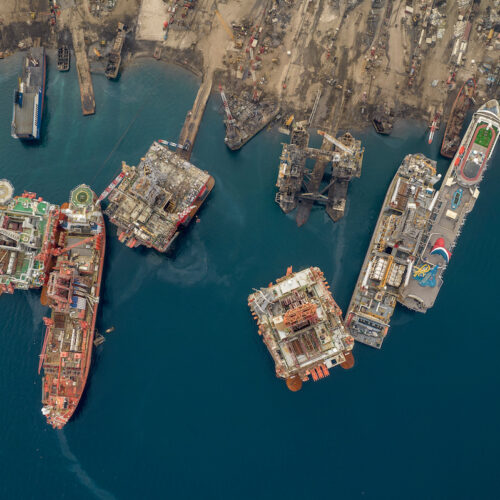Platform publishes South Asia Quarterly Update #21
There were a total of 166 ships broken in the first quarter of 2020. Of these, 126 ships were sold to the beaches of South Asia for dirty and dangerous breaking [1]. Between January and March, at least 4 workers have lost their lives and at least 7 were severely injured when breaking ships in Bangladesh.
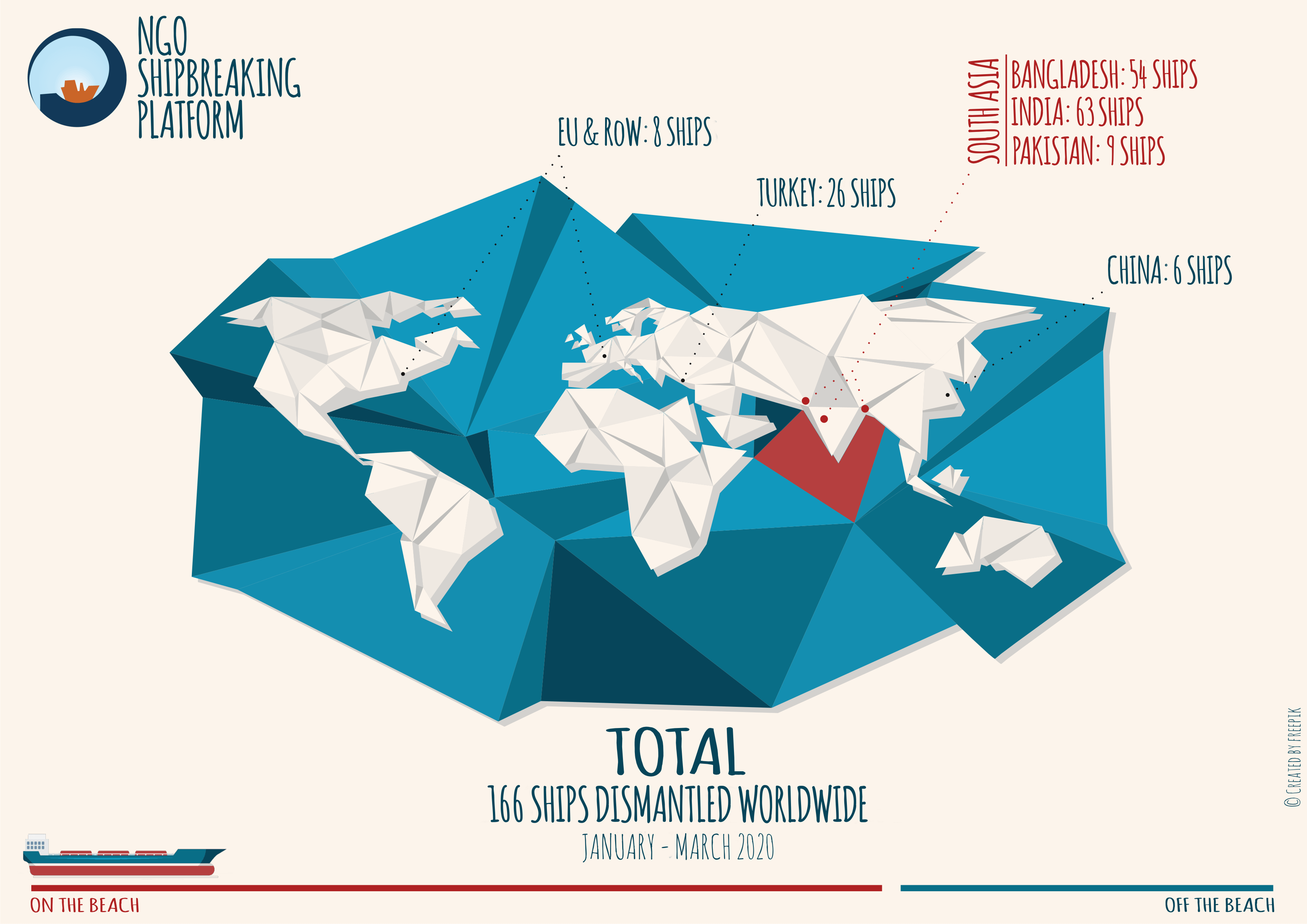
On February 3, Liton Das (27) was hit by a falling iron plate on his right leg at the Bangladeshi M.M. shipbreaking yard. Liton currently lies in his bed at home with an open wound at high risk of infection.
On February 4, cutter man Kiron Tripura (28) died at Ziri Subedar shipbreaking yard. A week later, Md. Mizanur Rahman (22) fell from great height whilst dismantling the vessel Anangel Hali, owned by Greek Angelicoussis Shipping Group, at S.N. Corporation yard. Mizanur died on the spot. He had started to work as a shipbreaker only four days prior his death.
On March 24, two brothers, Sumon Das (45) and Nironjon Das (48), died when breathing atoxic gas, while working in the engine room of the tanker West Energy, owned by South Korean company Sinokor. The vessel was beached at Kabir Steel’s Khawja shipbreaking yard. Sumon and Nironjon leave five children behind. In the same accident, two other workers, Kawser and Habib, were also exposed to the toxic gas and fell sick. The Department of Inspection for Factories Establishments (DIFE) stated to local media that the accident will be investigated.
Accident records in Gadani, Pakistan and Alang, India, are extremely difficult to obtain. A recent BBC Disclosure report reveals how companies involved, as well as Indian local authorities, seek to thwart public scrutiny of the deplorable conditions in Alang. Also other journalists that have visited the Indian shipbreaking yards, often unannounced and undercover, have documented a reality that starkly contrasts with the industry efforts to greenwash the beaching of vessels for breaking. Workers risk their lives due to lack of infrastructure and dangerous conditions. They are furthermore not provided adequate respiratory protective gear and thus exposed to hazardous materials and gases that impair their health, causing cancer and other respiratory diseases. The death toll caused by occupational diseases contracted at the beaching yards is not disclosed in either India, Pakistan or Bangladesh, and is sadly likely to be shockingly high.
In the first quarter of 2020, Saudi Arabian ship owners sold the most ships to South Asian yards, followed by South Korean and Greek owners. Shipping company Berge Bulk sent five vessels to Bangladesh for dirty and dangerous breaking.. These add up to the four ships that the ship owner sold to the same beach last year. Berge Bulk’s scrapping practices should prompt the Lloyd’s List Asia Awards to withdraw the prize for “Excellence in Environmental Management” the company recently received for its commitment to environmental conservation. Indeed, there is nothing laudable about putting workers lives at serious risk and polluting sensitive coastal environments.
Almost half of the ships sold to South Asia this quarter changed flag to the registries of Comoros, Gabon, Palau and St. Kitts and Nevis just weeks before hitting the beach. These flags are not typically used during the operational life of ships and offer ‘last voyage registration’ discounts. They are particularly popular with the middlemen that purchase vessels cash from ship owners, and are grey- and black-listed shipping registries due to their poor implementation of international maritime law.
The high number of flag changes at end-of-life seriously compromises the effectiveness of legislation based on flag state jurisdiction only, such as the European Union (EU) Ship Recycling Regulation. The Platform recorded at least six ships that de-registered from an European flag registry prior the last voyage to South Asia in order to circumvent EU legislation.
How Covid-19 pandemic is affecting vulnerable shipbreaking workers
The current Covid-19 pandemic is also affecting the South Asian shipbreaking workers. Authorities have halted imports of vessels and imposed strict lockdowns.
As reported by the newspaper The Indian Express, migrant workers in Alang, unable to return to their home villages, are facing serious financial difficulties. They are yet to receive their March salaries and have not received any alternative support, such as food, from their employers. Fortunately, media report that the Gujarat government has now stepped in and distributed thousands of ration kits to the migrant workforce stuck in Alang.
In Pakistan, more than 400 food bags were handed out to the National Trade Union Federation Pakistan and the Shipbreaking workers Union at Gadani shipbreaking yard.
In Bangladesh, according to the Platform’s member organisation YPSA, only local workers are partially receiving food support from the government and from some yard owners. Migrant workers, on the other hand, have not received any public support. YPSA and OSHE, another Platform member organisation active in the Chattogram area, are currently providing assistance to part of the migrant workforce. There is a dire need to secure emergency food assistance, as well as medical check-ups and awareness raising to avoid the spread of Covid-19.
PLEASE DONATE TODAY AND HELP MAKE A DIFFERENCE
DONATE ONLINE or by BANK TRANSFER
In the shipbreaking area of Chattogram, Bangladesh, 1070 workers that have lost their income due to the Covid-19 lockdown have received food supplies [2]. However, this is not enough as there are thousands of workers and their families who need support. We are therefore calling for YOUR support NOW to make the delivery of food packages to more workers and their families possible. In collaboration with our member organisation OSHE, we will mobilise resources during this challenging and difficult time.
Every little bit helps! Your gift will feed not only the workers but their families too!
Help Migrant Workers Programme
€50
Feeds 1 family – 5 family members – for 2 weeks
€100
Feeds 2 families – 10 family members – for 2 weeks
€500
Feeds 10 families – 50 family members – for 2 weeks
€1,000
Feeds 20 families – 100 family members – for 2 weeks
€1,000+
We still need to help thousands of workers who have been affected by this pandemic
€
Other amount (please specify)
Please put reference “FOOD PACKAGES” on your communication when making the donation. All donation earmarked “FOOD PACKAGES” will go towards the Help Migrant Workers Programme in Bangladesh. Once the donation has been made, we would really appreciate if you could send us an e-mail with your full name and donation amount. If you need further information, please do not hesitate to contact us.
Thank you for your support!
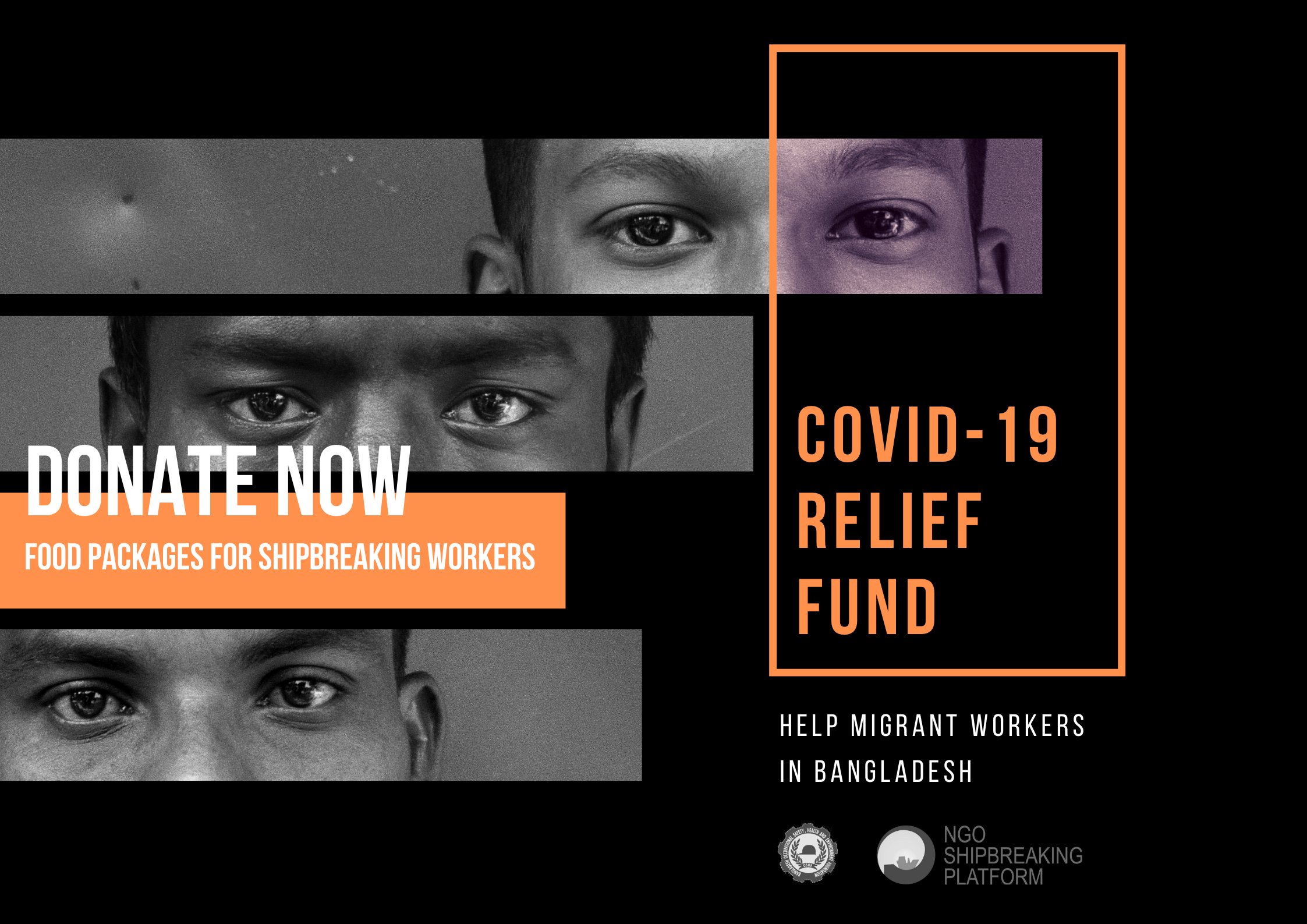
NOTES
[1] During the first quarter of 2020, the following number of vessels were broken in other locations: 26 in Turkey, 6 in China, 5 in Europe and 3 in the rest of the world.
[2] YPSA’s Press Release
Related news
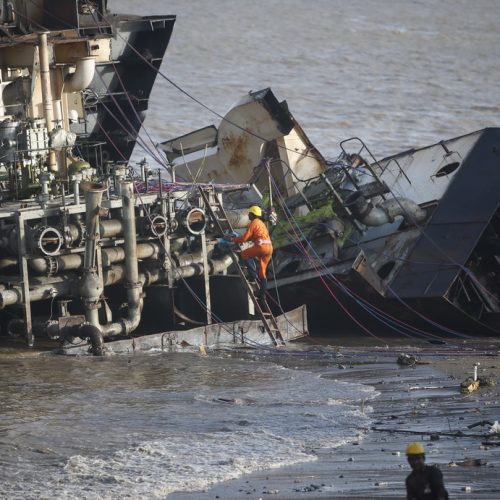
Platform publishes South Asia Quarterly Update #19
There were a total of 193 ships broken in the second quarter of 2019. Of these, 146 ships were sold to the infamous scrapping beaches of South… Read More

Press Release – Danish opposition parties call on Government to stop beaching of Maersk vessels
The Danish Environment Minister, Esben Lunde Larsen, had to answer to the Parliament yesterday following questions put to the Government by all the opposition parties. The… Read More

Platform News – Dead U.S. Ship on Four-Month Tow Ends on Indian Beach
The HORIZON TRADER, a 42 year-old American built and operated container ship, was beached earlier this month at the notorious shipbreaking site of Alang, India, despite the… Read More

Platform publishes South Asia Quarterly Update #8
The NGO Shipbreaking Platform publishes today the eighth South Asia Quarterly Update, a briefing paper in which it informs about the shipbreaking industry in Bangladesh, India and… Read More

Platform publishes South Asia Quarterly Update #22
There were a total of 98 ships broken in the second quarter of 2020. Of these, 60 ships were sold to the beaches of South Asia, where shipbreaking kept putting workers’ lives at risk.
... Read More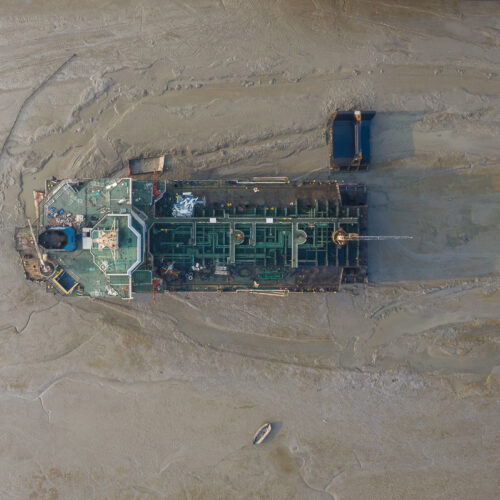
Press Release – Platform publishes list of ships dismantled worldwide in 2022
In 2022, 292 large tankers, bulkers, floating platforms, cargo- and passenger ships ended up for dirty and dangerous breaking on tidal beaches in Bangladesh, India and Pakistan.
... Read More
